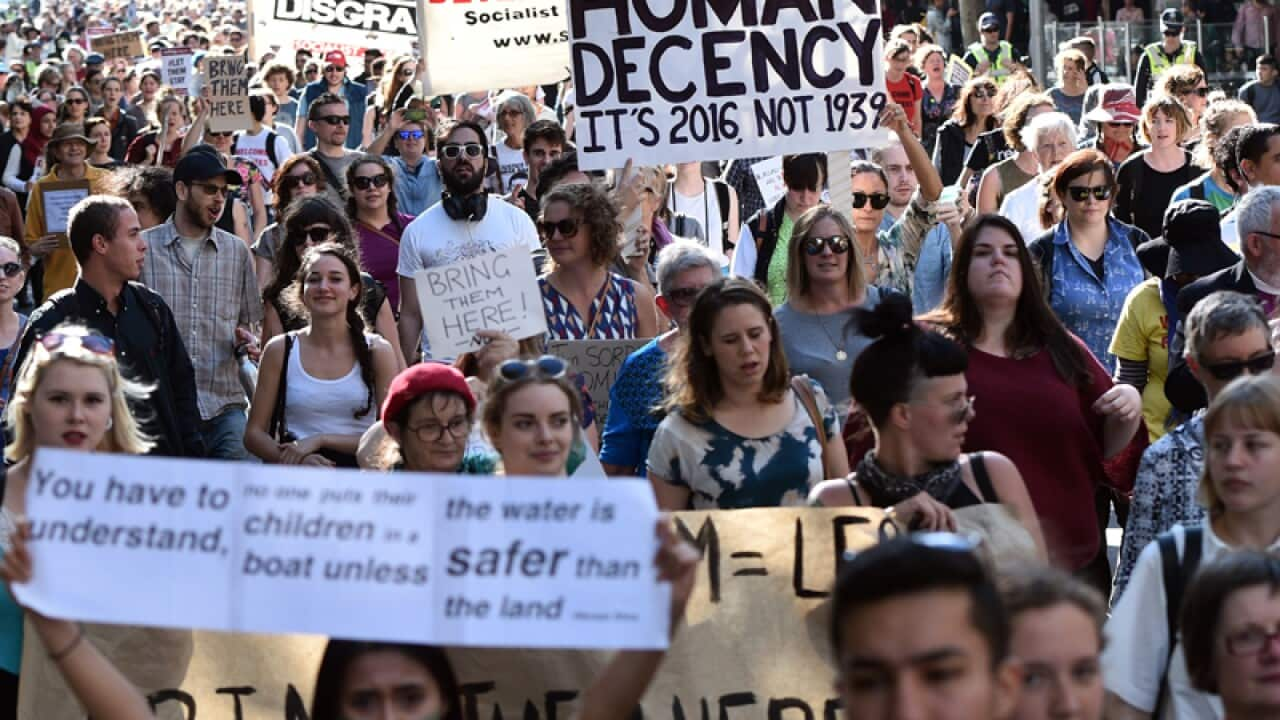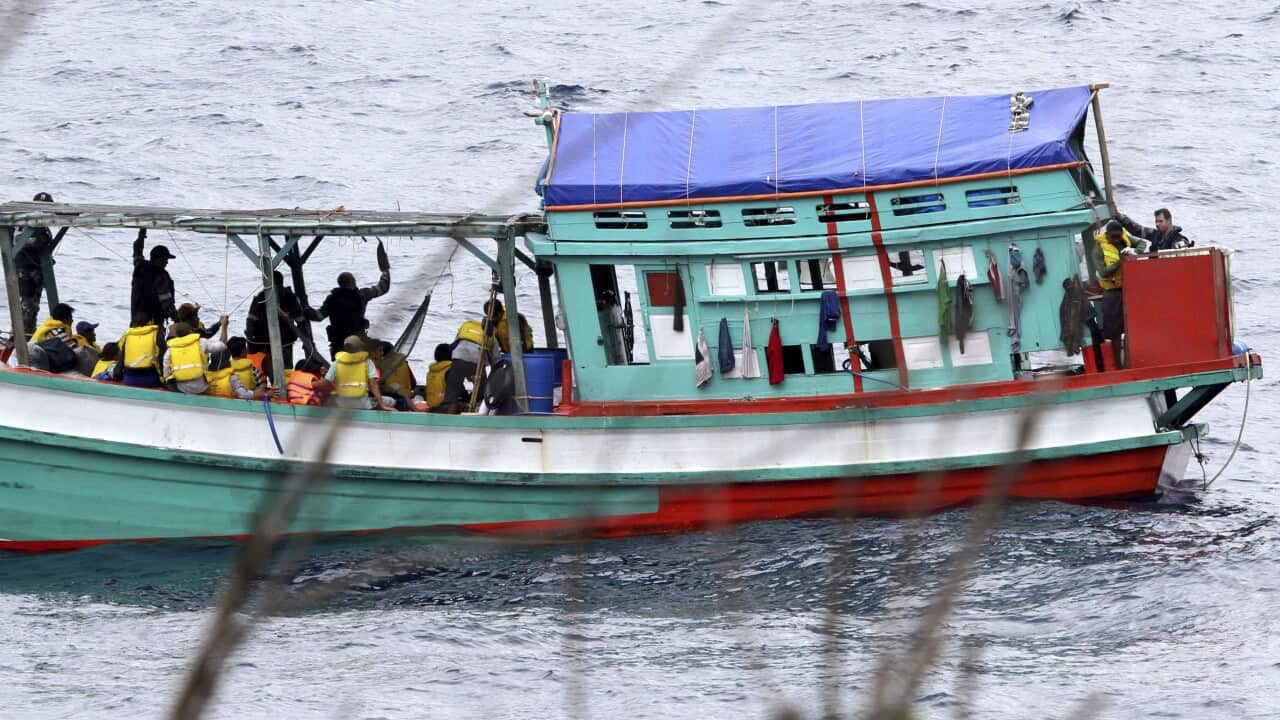Imagine a world where you're lost, confused and angry but cannot do anything. Now imagine you're a refugee and that's your reality.
This is what game developers in Germany want people who may never experience the plight of refugees to feel when playing a game released in January.
Gabriel Helfenstein and Tristan Neu, of , created North – a game inspired by the situations of refugees who arrive in Europe but then experience “endless administrative procedures of just waiting and waiting, [but] often for nothing”.
The main goal of North is to confront players and make them feel “confused, bored and even frustrated or angry”, while keeping people engaged enough that they’re don't feel they're merely in the position of an outsider or an observer.
“We hope those feelings will encourage them to reflect on what our society is doing to people who are simply seeking a better life,” Mr Helfenstein told SBS News from Berlin.
In the game people play a man who arrives in a dark city filled with strange creatures and equally strange customs.
“You apply for asylum and have to go through several tasks, without never really understanding what you have to do or what people are telling you,” he said.
“The only way to understand the world around you is to send letters to your sister, who still lives in the South.” These letters help move the game's narrative forward in a visually dark and surreal setting inspired by German expressionism and cyberpunk.
These letters help move the game's narrative forward in a visually dark and surreal setting inspired by German expressionism and cyberpunk.

A desert which the character crosses on his journey migrating to the North. Source: Outlands Games
Mr Helfenstein said including a fantasy and science-fiction element reflected a stark contrast in comparison to the reality of ongoing refugee crises that aren't just isolated and unique to Europe.
However, North is not an empathy game because “it’s not supposed to replicate the experience of a refugee: you will not know how it is to be a refugee just by playing the game”.
The birth of North
It took the pair, who were working on a web-documentary project about European migration policies, around two years to make the game.
“The [web-documentary] project sadly failed because of a lack of funding and other issues, but we spent two years on it, researching, travelling to the borders and interviewing people,” Mr Helfenstein said. “So on the one hand, the topic had a very personal appeal to us as we needed some kind of closure, and on the other hand, we had all this information and knowledge about the situation that we wanted to use it [in a game].
“So on the one hand, the topic had a very personal appeal to us as we needed some kind of closure, and on the other hand, we had all this information and knowledge about the situation that we wanted to use it [in a game].

The asylum seeking character joins a queue in what is a police station. Source: Outlands Games
“As we started working on North, the refugee crisis in Europe intensified and it became even more necessary for us to make a game about it.”
He and Mr Neu both live in Berlin but are from eastern France, near the shared border with Germany.
Mr Helfenstein said for him, moving between borders opened new doors of opportunity and it was always an easy thing. “I hugely profit from the European Union and the way it allows me to travel and live wherever I want,” he said.
“I hugely profit from the European Union and the way it allows me to travel and live wherever I want,” he said.

A look inside the immigration office in the new game. Source: Outlands Games
“It just seems unjust … It’s just absurd to think that, for most people, this is not possible and it takes years or even their lives, just to cross one single border.”
A game changer
Despite the creators getting different reactions to the game, an in Berlin this year nominated North for the best game.
Mr Helfenstein said it was a big challenge to create something about boredom that is not boring itself.
He said, as game developers, they understood how the fun factor was an essential element of play, but it was necessary to experiment with different emotional states, aided by atmosphere, soundtrack and the sense of place in North, to help the medium grow. “It was also an interesting challenge to make an unpleasant game somehow still remain engaging,” he said.
“It was also an interesting challenge to make an unpleasant game somehow still remain engaging,” he said.

The city and it's dark skyline. Source: Outlands Games
“Some people hate it because it was boring, and thus I guess we failed to convey the engaging part, and others loved it, in which case we failed to convey the boring/ confusing part.
“But generally the feedback was very good.”
Regardless, he said the game was ultimately about provoking those emotions which refugees may feel, to encourage people to think about the bigger picture and broader issue.
Related reading

Australians accepting of refugees: survey



